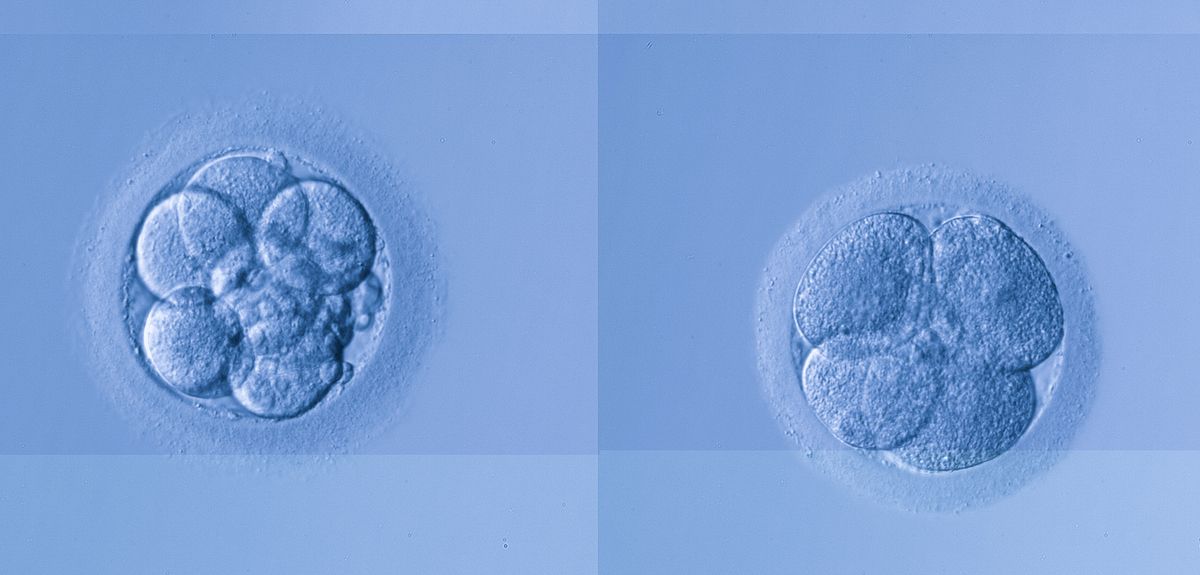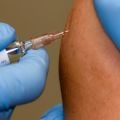
Image credit: 895Studio/ Shutterstock
Researchers find human development's first gear
- Team spent ten years trying to find role of four genes: Argfx, Leutx, Dprx and Tprx
- Genes only act in one brief period during the early stages of an embryo
- After fertilisation starts the engine of growth, genes control the 'first gear' of embryo development
- Genes arose 70 million years ago in an unstable area of human DNA
Oxford University researchers are closer to solving a decade-old mystery after discovering that a set of genes they are studying play a key role in early human development.
It was really shocking to find these genes are only read for a pulse of a few hours in our entire lifetime.
Dr Ignacio Maeso, Department of Zoology
Evolutionary biologist Professor Peter Holland and graduate student Anne Booth identified and named the genes, known as Argfx, Leutx, Dprx and Tprx, in data published by the Human Genome Project in 2002. The genes belong to the homeobox group, and it was known that other homeobox genes direct the formation of tissues and organs during development. However, when they tried to find out exactly what the newly discovered genes did, they hit a problem.
Professor Holland explained: 'To find a gene's function, you first look to see where it is switched on or expressed. But wherever we looked for these genes we could not see them expressed, making their function more and more of a mystery. That is, until researchers in China sequenced all the genes active in the very earliest stages of human development, and that's where we found our genes switched on. This gave us an important clue.'
Researchers Dr Ignacio Maeso and Dr Thomas Dunwell, members of the Oxford research group, analysed the data carefully and discovered the genes are activated for an astonishingly brief period, when the embryo is a tiny ball of 8 to 16-cells. This stage marks the point just before cells make the decision whether to form part of the placenta or grow into the embryo itself. The genes are then simply switched off.
Ignacio Maeso said: 'It was really shocking to find these genes are only read for a pulse of a few hours in our entire lifetime.'
[These] genes act to switch on or off dozens of other genes, including a set that may prepare the embryo for the cell decisions it is about to make.
Dr Thomas Dunwell, Department of Zoology
To find out what they do, Thomas Dunwell took each gene in turn and expressed them in normal adult cells grown in culture. He explained: 'We found our genes act to switch on or off dozens of other genes, including a set that may prepare the embryo for the cell decisions it is about to make.'
Peter Holland commented: 'If fertilisation is the ignition key for human development, then these genes control the change into first gear.'
There is also an evolutionary twist to the story. The team discovered that the genes are only found in placental mammals, those that carry their embryos internally, like humans.
Ignacio Maeso explained: 'They are found on chromosome 19, known to be an unstable part of our genome. Think of it as a bubbling cauldron of DNA, with individual bits of DNA being added and taken away, occasionally forming whole new genes. At the dawn of placental mammals, 70 million years ago, these genes emerged and were grabbed by evolution to perform a new task, acting to control what cells do in the earliest stages of development.'
The paper, Evolutionary origin and functional divergence of totipotent cell homeobox genes in eutherian mammals, is online at http://bmcbiol.biomedcentral.com/articles/10.1186/s12915-016-0267-0
 International collaboration launches largest-ever therapeutics trial for patients hospitalised with dengue
International collaboration launches largest-ever therapeutics trial for patients hospitalised with dengue
 Oxford-built multi-agent assistant for cancer care to be piloted in collaboration with Microsoft
Oxford-built multi-agent assistant for cancer care to be piloted in collaboration with Microsoft
 World's first Phase II Nipah virus vaccine trial launch
World's first Phase II Nipah virus vaccine trial launch